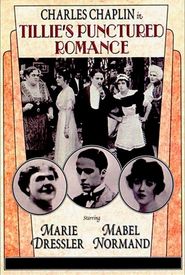Mabel Normand was a renowned comedy actress, director, and writer in the early days of film. Despite being a trailblazer for women in comedy, her contributions have been largely forgotten. She debuted the Keystone Cops, Charlie Chaplin's tramp character, and the iconic pie-in-the-face gag. Her collaborations with Chaplin, Roscoe "Fatty" Arbuckle, and Mack Sennett are a testament to her innovative spirit and influence on the development of comedy in film.
Born on Staten Island, New York, to Claude and Mary Normand, she began her career as an artist model for Charles Dana Gibson. Friends encouraged her to pursue a career in film, and she worked as an extra in Kalem and Biograph shorts. With Biograph's move to California, she joined Vitagraph, where she made a series of comedic shorts as 'Betty', co-starring with John Bunny.
Normand's partnership with Mack Sennett at Keystone Comedies was marked by a deep creative and personal connection. Sennett's ideas often revolved around Normand, and she was instrumental in the development of the Keystone Cops and Charlie Chaplin's tramp character. When Normand left Keystone for Goldwyn, Sennett followed suit.
By 1912, Normand was writing her own films, and by 1914, she was directing them as well. Her success led to her being hailed as a major star, topping fan polls in new movie magazines. Her influence on Charlie Chaplin cannot be overstated, as she was instrumental in helping him develop his iconic tramp character.
Chaplin and Normand's comedic chemistry led to a series of popular shorts together, with "Tillie's Punctured Romance" being their first full-length comedy film. After Chaplin left Keystone, Normand teamed up with Roscoe "Fatty" Arbuckle in a series of successful shorts.
Despite her professional success, Normand's personal life was marked by turmoil. Her engagement to Mack Sennett ended when he was caught cheating, and she suffered a severe head injury at his hands. She went on to create her own production company, "Mabel Normand Film Company", but it ultimately dissolved. She later signed with Goldwyn and Hal Roach, making comedy features and shorts.
Normand's health began to decline in the late 1920s, and she was diagnosed with tuberculosis. Her struggles with addiction and partying led to rumors of drug use, which her family and estate have vehemently denied. She died in 1930 at the age of 37, a victim of tuberculosis. Despite her untimely passing, Mabel Normand's legacy as a pioneering comedian and director continues to inspire and influence filmmakers to this day.































